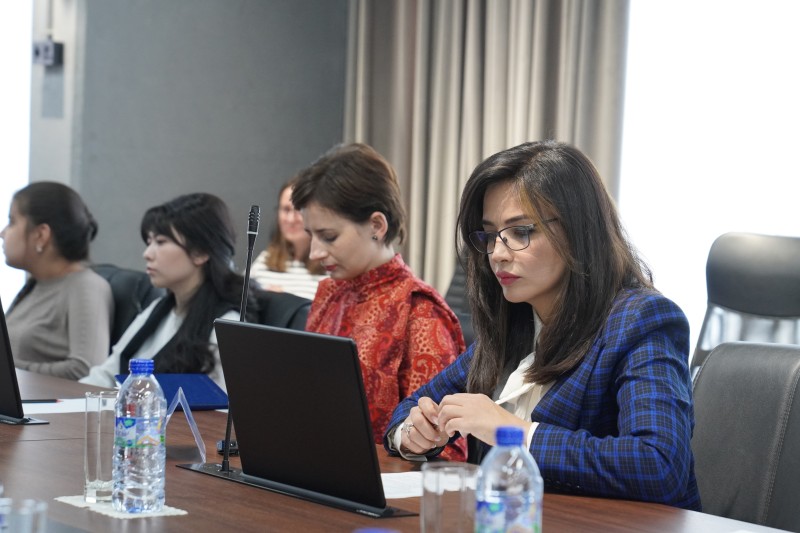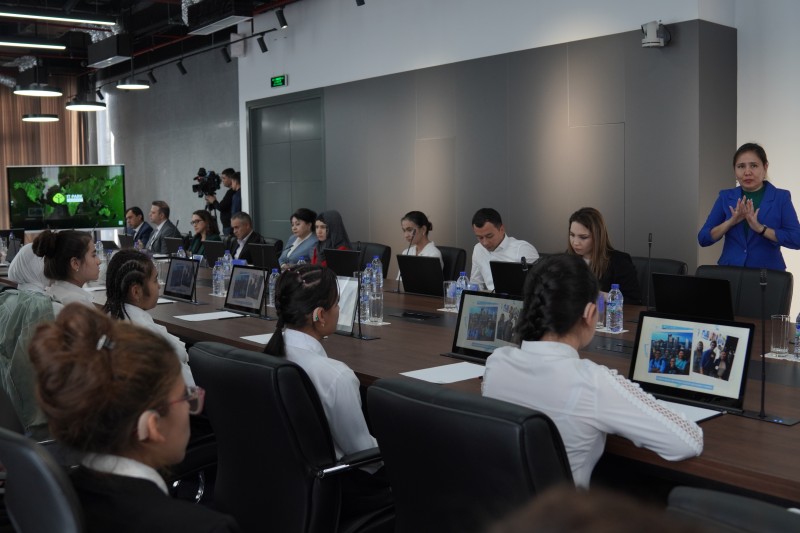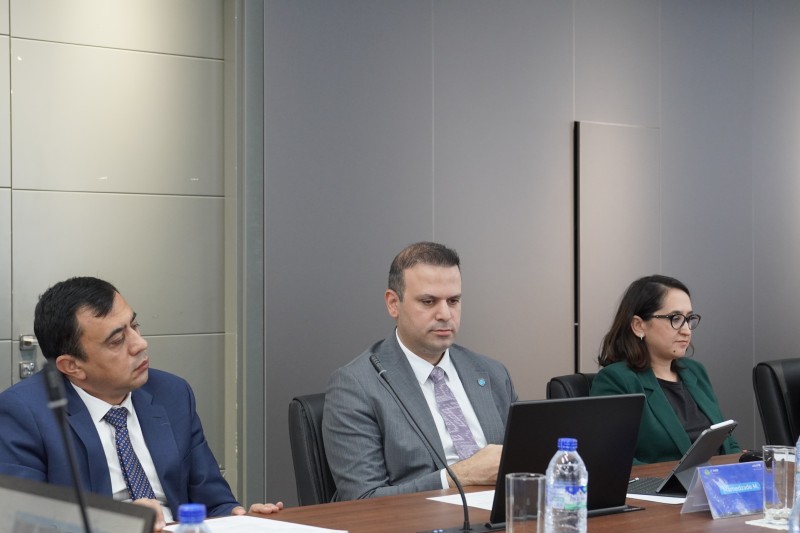
IT Park held event on IT-education for girls
In the countries of Central Asia, in particular, in Uzbekistan, many girls are still afraid to go into technical areas because they are not confident in their abilities. This is partly because IT has traditionally been considered a male domain. That is why projects aimed at involving women in such industries are especially valuable.
One of the major projects of this kind is the Digital Literacy and Graphic Design Training Program for Girls, initiated by IT Park and UNICEF with the support of the Ministry for Development of Information Technologies and Communications of the Republic of Uzbekistan. The main objective of the project is to increase the participation of girls, including girls with various forms of disabilities, in the IT sector based on the principle of inclusiveness, as well as to increase their confidence in their own abilities.
The project is a free comprehensive digital literacy and graphic design training program at IT Centers in Karshi, Termez, Nukus, and Tashkent to improve leadership and empower girls in STEM fields.
The duration of the project is 6 months (June-November 2022). Within the framework of the project, girls aged 12 to 18 are trained, among whom there are also girls with visual impairments, hearing impairments and other disabilities, for whom the age limit is exceeded.
On October 11, Yashnabad branch of IT Park hosted an event dedicated to the 10th anniversary of the International Day of the Girl. Representatives of the Ministry for Development of Information Technologies and Communications of the Republic of Uzbekistan, IT Park and UNICEF delivered a speech at the event.
Kamola Shavkatovna Sobirova, Advisor to the Minister for Attracting Youth and Women to the IT sphere, emphasized that there is always a place for equality in the IT-sphere.
“Endless educational and career opportunities should be available to everyone. IT is a direction where everyone can be equal, regardless of gender and physical abilities. And we see this in the example of girls who study at these courses and continue to confidently build their future in IT. It is very important to launch as many such initiatives as possible in the country, because for many they become the starting point for a new life”.
UNICEF Representative in Uzbekistan Munir Mamadzade noted during his speech:
“In Uzbekistan, girls and young women make up a significant percentage of those who are out of school, out of work and out of education (NEET), making them more vulnerable to social exclusion. In addition, there remains a significant gap between girls and boys in computer literacy, access to and use of the Internet in Uzbekistan.
Girls with disabilities are particularly at risk of missing out on education and training and do not have the minimum digital literacy to safely navigate digital platforms, limiting future educational and employment opportunities”.
In addition, participants of the project “Skills4Girls” made a speech, including girls with disabilities. They talked about learning under this project and shared their unique life stories with the audience.
As UNICEF representatives noted, in Uzbekistan, the majority of people not covered in employment, education or training (NEET) are girls and young women, which makes them more vulnerable to social exclusion.
After completing compulsory secondary education, 56% of young people aged 19-24 are in the NEET group (69% of women and 33.4% of men). The NEET rate for young women increases rapidly when they reach the age of 18 and complete compulsory secondary education (from 1.7% to 69%).
In addition, a significant gap remains between girls and boys in computer literacy, as well as in access and use of the Internet, UNICEF recalled. Thus, the proportion of women who do not own a computer in Uzbekistan is 43.5% compared to 30% among men. The proportion of girls and young women aged 14-30 who have never used the Internet is 68%. The main reasons for not using the Internet among young people are poor communication, lack of their own gadgets and the high cost of the Internet.
For girls and young women, access is also difficult due to social stigma, while the underrepresentation of young women in STEM fields reduces their employment prospects, according to the UN Childrenʼs Fund.
2022-10-11


